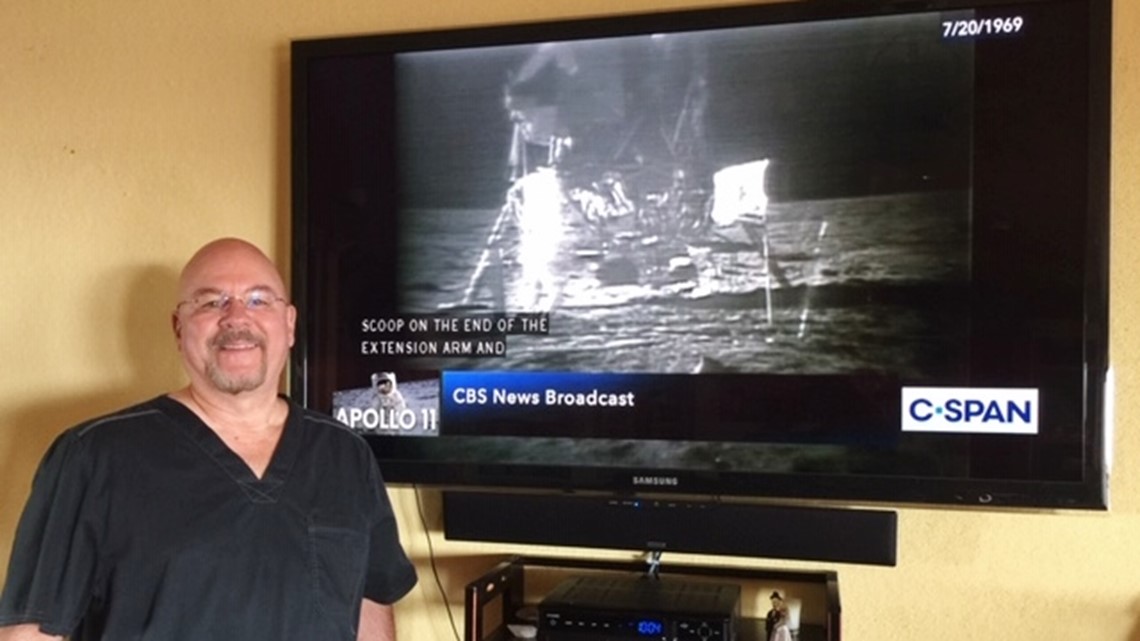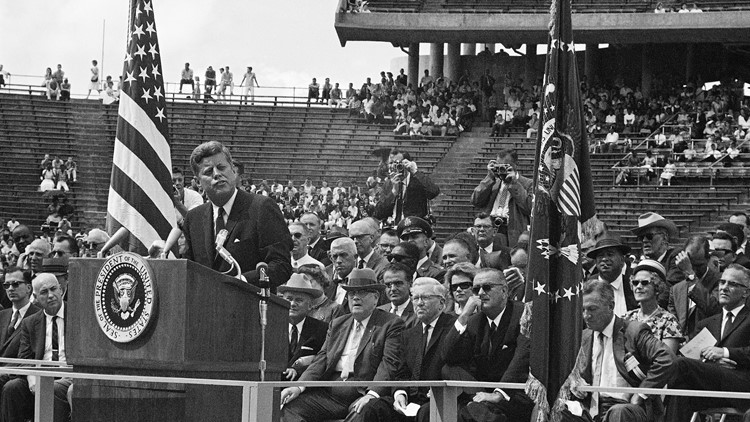SAN ANTONIO — Both in our mid-60s now, it takes my best friend and I a little longer to come up with the names of the seven original American astronauts, known in history as the Mercury 7, whose exploits in space became the stuff of legends.
Alan Shepard, John Glenn, Gus Grissom, Deke Slayton, Scott Carpenter, Gordon Cooper and Wally Schirra became instant celebrities when NASA introduced them as the country’s first astronauts on April 9, 1959. All are deceased but the memories of their courage and unwavering commitment to the space program will endure for years to come.
I was in Corpus Christi, my hometown, for the funeral of a former sister-in-law Friday when Roberto Gonzalez, who is more a brother to me than my closest friend, and his wife, Gloria, invited me to spend the night at their lovely condo.
Early Saturday, the 50th anniversary of the Apollo 11 lunar landing on July 20, 1969, Bobby, as he is called by all those who know him, and I sat in front of the TV in the living room and watched CNN and C-SPAN’s coverage of the watershed moment in human history. It was a fascinating and powerful experience.
My iPhone said it was July 20, 2019, but for a few hours Saturday, it was July 20, 1969, again, and I was a 14-year-old getting ready for my freshman year at Ella Barnes Junior High in Corpus Christi.
"We've seen it over the years, but this being the 50th (anniversary), it's really something," said Bobby, who was 15 then and also preparing for his freshman year at Barnes. "It goes hand in hand with our life. It's like a reel of our life. We saw it 20 years later, we saw it 25 years later. We remember those. But 50 years now, when we were kids in junior high, that's a long time.
"A lot of kids wanted to be astronauts, everyone was excited (about space). You hear the word hero thrown around a lot these days. You've heard arguments, pro and con, because they overuse the word hero. But back then, the astronauts were synonymous with that word."


Before Neil Armstrong became the first man to set foot on the moon, there was another seminal moment that set in motion one of mankind’s greatest accomplishments.
Bobby and I were in the second grade when President Kennedy, in a stirring speech at Rice Stadium in Houston on Sept. 1962, challenged the country to land a man on the moon by the end of the 1960s.
“We choose to go to the moon in this decade and do the other things, not because they are easy, but because they are hard,” Kennedy said, “because that goal will serve to organize and measure the best of our energies and skills, because that challenge is one that we are willing to accept, one we are unwilling to postpone and one which we intend to win, and the others, too.”
Almost 57 years later, JFK’s powerful words that day still resonate. He spoke with such conviction, such clarity, that it’s easy to see how he appealed to the patriotism and pride of his nation’s citizens. I was almost overcome with emotion Saturday as I watched Kennedy speak and heard his words in that familiar New England accent.
Kennedy’s speech was one for the ages and inspired NASA and the country to keep reaching for the heavens and beat the Soviet Union to the moon. In the end, that was JFK’s primary objective. While Americans had no illusions about the challenge that lay ahead, there was a quiet confidence that someway or somehow, the United State would get to the moon by the end of the decade.
This was a time when Americans still had a high degree of confidence in their federal government and its institutions. The tragedy that would befall the country in Dallas was still more than a year away, the Vietnam War had not yet exploded into a maelstrom and Watergate was a decade down the road.
Of course, the United States was far from a utopia while the country raced to the moon. The scourge of racism and ethnic discrimination still were huge problems and women, too, were treated like second-class citizens in many facets of society.
But while we struggled to come to grips with these problems, we were sustained by an abiding hope that the country finally would live up to its promise and embrace all its people. Kennedy was a pragmatist, but he was no cynic. Like Lincoln, he balanced his pragmatism with just enough idealism to be a strong leader who appealed to the better angels of our nature.
Kennedy was not perfect, of course. Like all of us, he had feet of clay. But there is no denying that he inspired a generation of Americans to serve their country and become part of something greater than themselves.
The space program reflected that service and a country’s hope for a better future. Sadly, JFK did not live to see an American set foot on the moon. But he was remembered that day, just as he was 50 years later Saturday.
The United States still was in turmoil on July 20, 1969. Dr. Martin Luther King Jr. and Robert Kennedy had been assassinated in 1968, the Vietnam War raged on with no end in sight and though some progress had been made, racism still was a problem.
But for a few hours 50 years ago, all the world was one as Neil Armstrong stepped out of the lunar module and said: “That’s one small step for man, one giant leap for mankind.”
What a day it was for our country – and the world.



